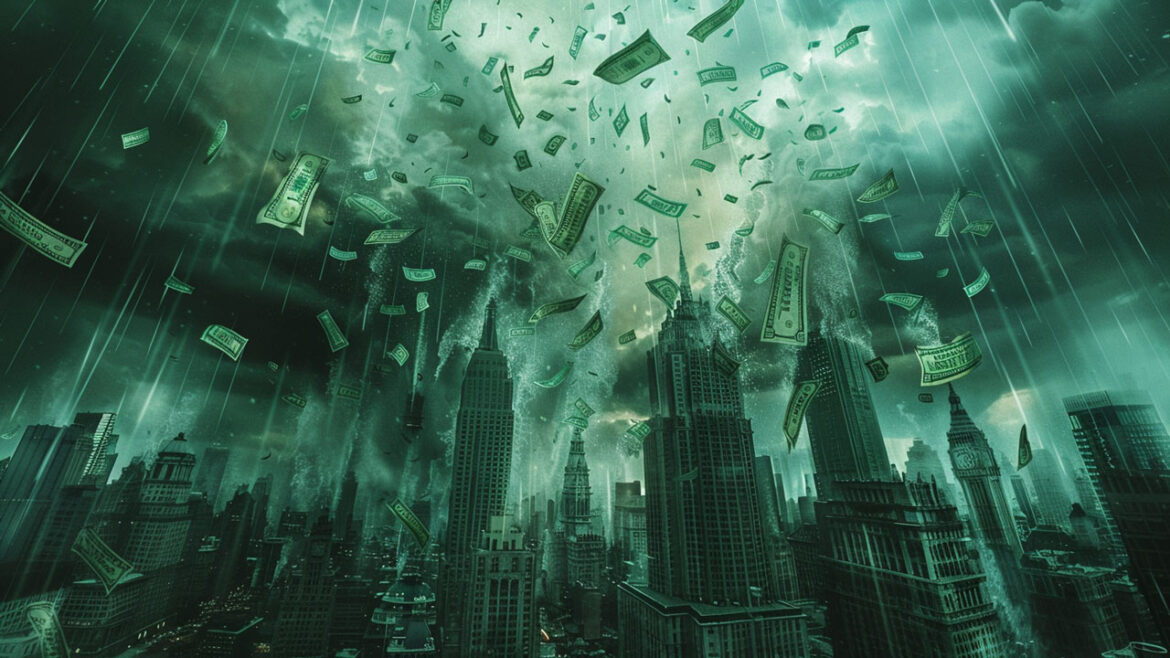Politicians parrot on about small businesses being the backbone of the economy, only to pass the regulations that stifle them.
In 2024, several federal agencies instituted new regulations on small businesses. These agencies included the Financial Crimes Enforcement Network, the IRS, and the Consumer Financial Protection Bureau. The new restrictions add to an exponentially increasing mountain of mandates that small businesses have to comply with.
The US national debt is so out of control that, ironically enough, even the Federal Reserve chair has expressed concern about the problem. And while America is among the top contributors, it isn’t just the US that’s spending money it doesn’t have: after briefly declining in 2023, the global debt-to-GDP ratio is again at an all-time high.
The percentage of U.S. adults holding an advanced degree increased by over 3% from 2011-2021. This increase in education is assumed to have a crucial role in America’s increasing economic strength over that time period. The expertise gained from such degrees is supposed to be valuable enough to outweigh the time and money put into grad degrees, both from the student’s perspective and the perspective of the schools and institutions that so often fund graduate degrees.
Platinum is entering its second year of substantial deficit, according to the Platinum Quarterly report from the World Platinum Investment Council (WPIC).
American car owners are facing a wall of bad debt to finance vehicles they can’t afford — especially pandemic buyers who took on huge loans to buy overpriced used vehicles that are now depreciating in value. With inflation running hot and poised to get even hotter if the Fed is forced to cut rates, it turns out that Americans can’t afford to insure those cars either.
Innovation has a silent killer… a scourge that America has aided and abetted for over a century.
Innovative activity is the backbone of the economy. Because of Google, Honda, and Netflix, life is easier for billions of people around the globe. A Stanford study found that up to 85% of economic growth is due to innovation. But what if all of this innovation never happened? For that matter, how much innovation could have happened, but never did because of government policy?
In 2009, 140 banks failed, and a recent report from financial consulting firm Klaros Group says that hundreds of banks are at risk of going under this year. It’s being billed mostly as a danger for individuals and communities than for the broader economy, but for stressed lenders across America, a string of small bank failures could quite quickly spread into a larger bloodbath — especially in an economy with hot inflation and a feverish addiction to ultra-low interest rates.
Cocoa prices have dumped since rocketing to a dramatic peak last month as an El Nino cycle winds down and traders rush out of the illiquid market. For now, depreciating fiat currencies are still keeping the cocoa price still far above its 2023 levels. Coffee has had a similar rise and subsequent correction — but now, inflation and other factors are conspiring to brew a pot of strong fuel for more upward price action in markets for the world’s other favorite bean.
California’s government bet that they knew better than the free market. And now millions are paying the price.
The story begins in 1919, when the city of Berkley, California instituted legislation setting aside districts that would only allow the construction of single-family housing. The idea spread, and soon much of California’s urban areas had adopted the zoning policy. Today, approximately 40% of the total land in Los Angeles is set aside for single-family homes, while only 11% is reserved for multi-family residences.
The yen was once known as a safe-haven currency for investors to protect themselves when broader markets are shaky or other currencies are dropping, but those days are numbered. A stable government and consistent (and low) interest rates have been some of the driving factors, but it’s the unwinding of that ultra-low interest rate policy that will be the yen’s “safe haven” undoing as gold retains its protective characteristics and rockets upward.













